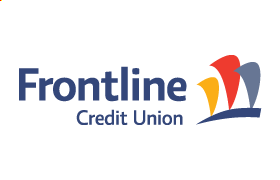We are digitally transferring money at record rates, and it’s easy to understand why the service is so popular.
Interac® e-Transfer is a fast and convenient way to send money to someone else electronically. You don’t have to share your banking information. You don’t need to fiddle with cash or cheques. While the service is secure and convenient, there are still some key things you can do to ensure that your e-Transfers are protected.
Here are five tips to help you protect your e-Transfers.
1. Transfer with those you know
Only send e-Transfers to individuals or businesses that you know or trust, the same way you would with cash. It’s also a good idea to give the recipient a heads up, so they know to expect an incoming e-Transfer.
The same goes for if you receive an unexpected e-Transfer. Be extra suspicious. If it comes from someone you don’t know, or you aren’t owed any money, don’t reply or click any links. Fraudsters will go to great lengths to try to legitimize their emails, even using company logos and similar addresses.
2. Use a secure internet connection
If you’re banking on the go, use your cellular data instead of defaulting to public Wi-Fi or hotspots, which might leave you susceptible to hackers. You should also avoid sending e-Transfers on shared computers, like those at libraries or internet cafes, — even a friend or family member’s computer or phone. They may not have adequate security settings or be prudently guarding against fraudsters.
3. Create strong security questions
Your security question shouldn’t be easy to guess or search online, and someone shouldn’t be able to find the answer in your email or social media posts. Use a challenging question that only you and the recipient will know that answer to.
4. Set up auto-deposit
You can also guard against email fraud by signing up for auto-deposit. That way, transactions sent to your email address will automatically be deposited into your bank account.
It’s also more convenient, as you can skip the steps that require you to enter a password or answer a security question.That means that even if fraudsters gain access to your email account, they can’t try to intercept the transfer.
5. Practice internet safety
There are many things you can do to increase your overall security on the internet:
- When possible, use two-factor authentication for email.
- Use strong passwords and never share them.
- Don’t use the same password across various accounts.
- Be careful not to click on any phishing links.
- Ensure that you are only transacting with trusted websites, vendors and people.
Learn more about Internet Security.
If you are suspicious of any transaction, you should immediately notify your financial institution. Here’s how to contact Frontline Credit Union.










